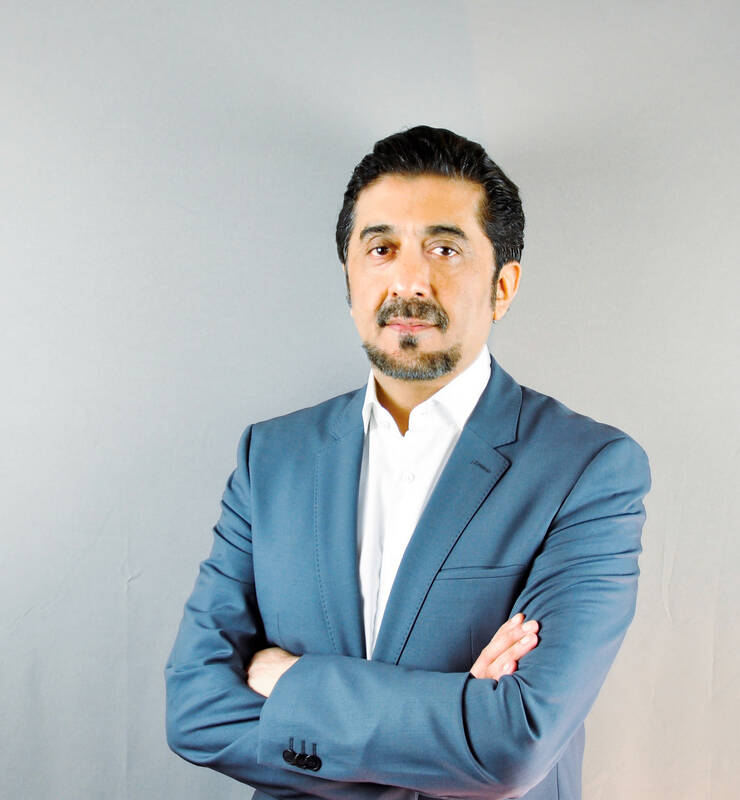Leveraging Citi’s global network of 95 countries and jurisdictions, Citi Commercial Bank Taiwan is closely partnering with local emerging corporate clients – a core client segment - to capture opportunities worldwide.
Emerging corporate companies are rapidly growing and are either born global or are going global in record time. In Taiwan, they include businesses from multiple sectors including technology and communications, consumer goods, retail, healthcare, and manufacturing.
Recognizing the potential for further growth of these companies and the strong appetite for international expansion, Taiwan is one of eight core markets globally for Citi Commercial Bank’s emerging corporates business.

Amit Dhawan, Head of Asia Pacific and International Markets, Emerging Corporates, Citi Commercial Bank, and Interim Head for Citi Commercial Bank Asia Pacific said, “Our clients in Taiwan are increasingly pursuing international opportunities, supported by government-led policies that are helping local enterprises go global. We are partnering our clients to expand beyond borders by delivering Citi’s network and local expertise and our Institutional Clients Group infrastructure to serve their cash, liquidity, and trade financing needs, manage their FX and access capital markets. These capabilities are distinct to Citi where we are offering our commercial banking clients the same capabilities that we have developed for the largest companies in the world.”
This is especially important in the post-pandemic economy where operations have become more complex. Clients are prioritizing the resilience of their business including the diversification of their supply chains and the acceleration of their own digital capabilities.
“As clients pivot their business models to be more digital, we continue to assist them on their digitalization journeys by providing a client experience that leverages our digital capabilities across the bank, making it seamless and simpler for them to bank with us,” added Amit.
Citi has seen increased adoption rates of its digital platforms and services, across online and mobile banking. Citi is committed to providing clients with best-in-class products and services with the help of cutting edge technology, and offering a differentiated and outstanding client experience. To address clients’ needs and preferences, Citi has upgraded its digital banking platform for corporate clients – CitiDirect R online banking and the mobile app.
Citi Commercial Bank serves home-grown emerging corporate champions in Taiwan. Citi is also the largest foreign bank in the market, providing services to over 800 multinationals and more than 100 leading local corporations and financial institutions.

Semiconductor business between Taiwan and the US is a “win-win” model for both sides given the high level of complementarity, the government said yesterday responding to tariff threats from US President Donald Trump. Home to the world’s largest contract chipmaker, Taiwan Semiconductor Manufacturing Co (TSMC, 台積電), Taiwan is a key link in the global technology supply chain for companies such as Apple Inc and Nvidia Corp. Trump said on Monday he plans to impose tariffs on imported chips, pharmaceuticals and steel in an effort to get the producers to make them in the US. “Taiwan and the US semiconductor and other technology industries

A start-up in Mexico is trying to help get a handle on one coastal city’s plastic waste problem by converting it into gasoline, diesel and other fuels. With less than 10 percent of the world’s plastics being recycled, Petgas’ idea is that rather than letting discarded plastic become waste, it can become productive again as fuel. Petgas developed a machine in the port city of Boca del Rio that uses pyrolysis, a thermodynamic process that heats plastics in the absence of oxygen, breaking it down to produce gasoline, diesel, kerosene, paraffin and coke. Petgas chief technology officer Carlos Parraguirre Diaz said that in

CHIP WAR: Tariffs on Taiwanese chips would prompt companies to move their factories, but not necessarily to the US, unleashing a ‘global cross-sector tariff war’ US President Donald Trump would “shoot himself in the foot” if he follows through on his recent pledge to impose higher tariffs on Taiwanese and other foreign semiconductors entering the US, analysts said. Trump’s plans to raise tariffs on chips manufactured in Taiwan to as high as 100 percent would backfire, macroeconomist Henry Wu (吳嘉隆) said. He would “shoot himself in the foot,” Wu said on Saturday, as such economic measures would lead Taiwanese chip suppliers to pass on additional costs to their US clients and consumers, and ultimately cause another wave of inflation. Trump has claimed that Taiwan took up to

SUBSIDIES: The nominee for commerce secretary indicated the Trump administration wants to put its stamp on the plan, but not unravel it entirely US President Donald Trump’s pick to lead the agency in charge of a US$52 billion semiconductor subsidy program declined to give it unqualified support, raising questions about the disbursement of funds to companies like Intel Corp and Taiwan Semiconductor Manufacturing Co (台積電). “I can’t say that I can honor something I haven’t read,” Howard Lutnick, Trump’s nominee for commerce secretary, said of the binding CHIPS and Science Act awards in a confirmation hearing on Wednesday. “To the extent monies have been disbursed, I would commit to rigorously enforcing documents that have been signed by those companies to make sure we get